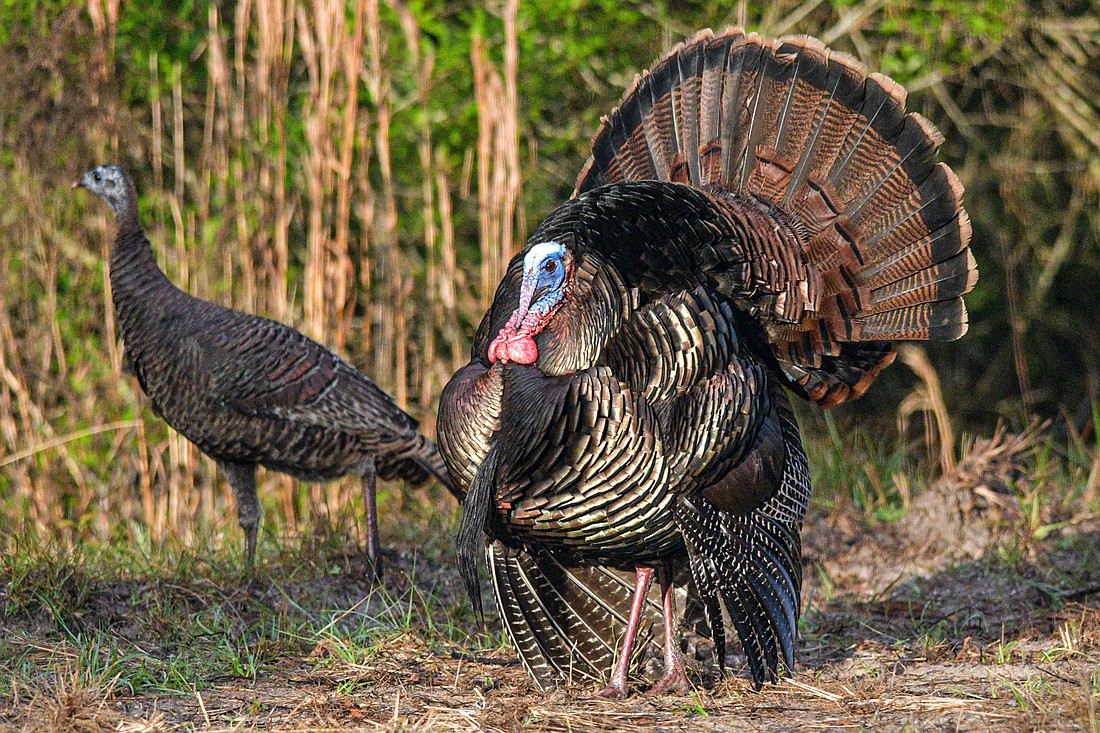- April 22, 2024
-
-
Loading

Loading

These iconic birds with long necks and legs, magnificently iridescent feathers and very small heads, can be spotted striding through woodland areas.
While all wild turkey are endemic to North America, the Osceola turkey, one of two local subspecies, is specific to Florida. Wild turkey are competent fliers. But, to conserve energy, given their size, they primarily walk, spending most of their time foraging on the ground for food such as acorns, seeds, fruits and insects. At night, for safety from ground predators, they roost in trees.
Wild turkey came close to extinction in the early 20th century when, in addition to suffering from degradation and destruction of their natural habitats (when forests and woodlands were cleared to make room for ranches and farmland), they were viewed as an unlimited resource by European colonists, who hunted them for food and sport.
By the 1930s, wild turkey populations hit their lowest numbers. Thanks to conservation efforts, turkey, and other rapidly dwindling native species, were protected by laws limiting and regulating hunting, and wildlife conservation areas.
Interestingly, in 1941, when Myakka River State Park was established, there were no wild turkey to be found in Sarasota County or any of the adjoining counties. To restore them to our area, one of the park's first managers imported wild turkey from the Everglades, and bred them in a pen, eventually releasing them into the park.
Though the restoration of wild turkey is considered a great wildlife conservation success story, continued habitat fragmentation and loss remain a concern; the Florida Fish and Wildlife Conservation Commission estimates that climate change and development will destroy 2.1 million acres of turkey territory by 2060.
Save our Seabirds is a non-profit organization whose mission is to rescue and rehabilitate sick and injured birds, releasing as many as they can, while educating our community about avoiding injuries and preserving habitats.